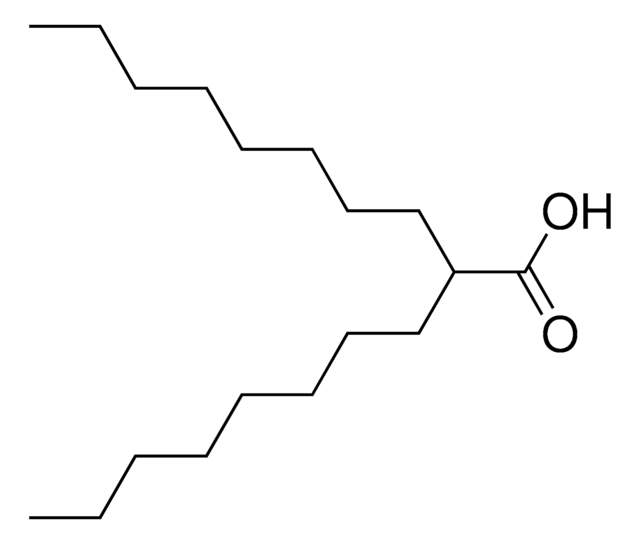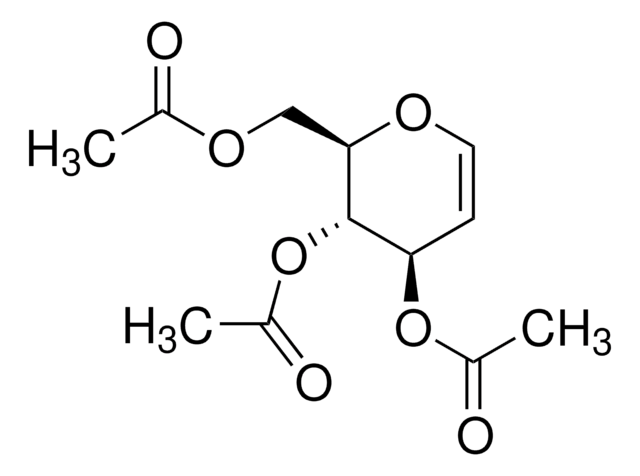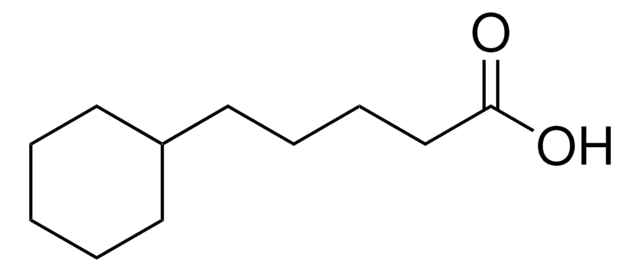464449
2-Hexyldecanoic acid
96%
Synonym(s):
2-n-Hexyldecanoic acid, Isopalmitic acid
About This Item
Recommended Products
Assay
96%
refractive index
n20/D 1.446 (lit.)
bp
268 °C (lit.)
mp
18 °C (lit.)
density
0.874 g/mL at 25 °C (lit.)
SMILES string
CCCCCCCCC(CCCCCC)C(O)=O
InChI
1S/C16H32O2/c1-3-5-7-9-10-12-14-15(16(17)18)13-11-8-6-4-2/h15H,3-14H2,1-2H3,(H,17,18)
InChI key
JMOLZNNXZPAGBH-UHFFFAOYSA-N
General description
Application
Signal Word
Warning
Hazard Statements
Precautionary Statements
Hazard Classifications
Aquatic Acute 1 - Aquatic Chronic 2 - Skin Irrit. 2 - Skin Sens. 1B
Storage Class Code
10 - Combustible liquids
WGK
WGK 2
Flash Point(F)
235.4 °F - closed cup
Flash Point(C)
113 °C - closed cup
Personal Protective Equipment
Certificates of Analysis (COA)
Search for Certificates of Analysis (COA) by entering the products Lot/Batch Number. Lot and Batch Numbers can be found on a product’s label following the words ‘Lot’ or ‘Batch’.
Already Own This Product?
Find documentation for the products that you have recently purchased in the Document Library.
Customers Also Viewed
Our team of scientists has experience in all areas of research including Life Science, Material Science, Chemical Synthesis, Chromatography, Analytical and many others.
Contact Technical Service

















